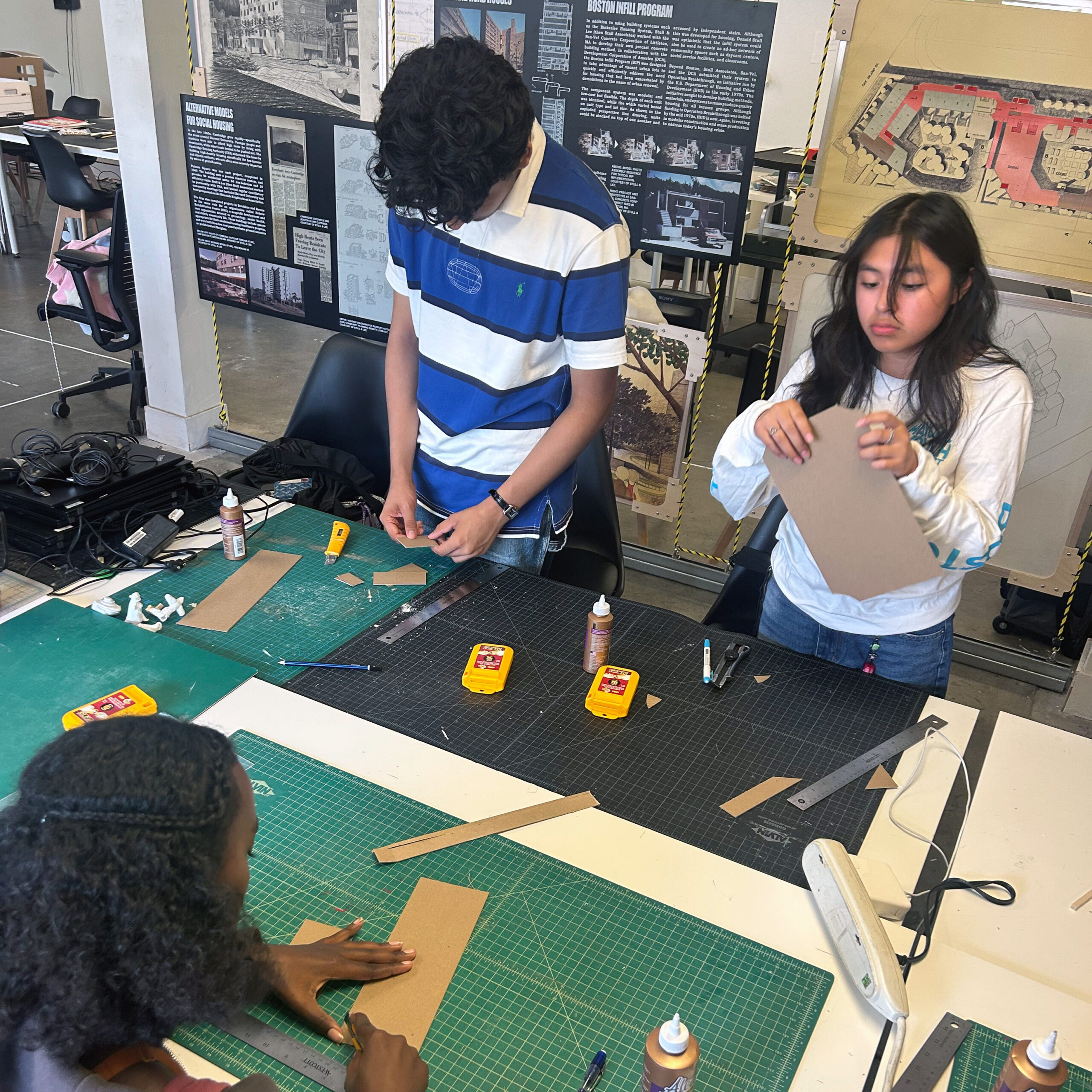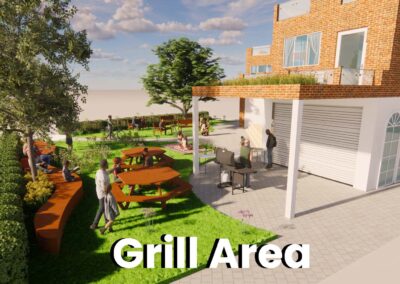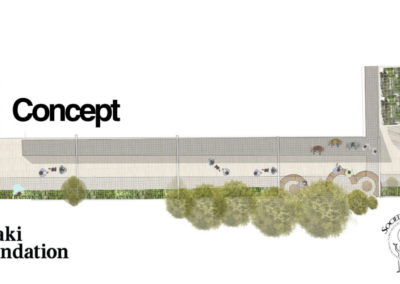August 29, 2025
SEED interns design for six local nonprofits
Estefany Benitez
On August 15, 2025, the Hideo Sasaki Foundation wrapped up our eighth annual Summer Exploratory Experience in Design (SEED) internship. This summer we welcomed 45 high school interns and 10 teaching assistants to design for 6 nonprofit organizations. In SEED 1, our first year interns worked to design concepts for the Mystic River Watershed Association (MyRWA) and the Boston Food Forest Coalition (BFFC). In SEED 2, our returning interns designed for Dudley Street Neighborhood Initiative (DSNI). In SEED 3, our advanced interns designed for Sociedad Latina, the Elizabeth Peabody House, and Friends of the Chinatown Library (FOCL).
In 2025, we notably had six SEED and DESI alumni returning as teaching assistants: the highest number of returning alumni to date. Our teaching assistants are college-age design students who guide our high school interns while learning about leadership, team management, project management, and communication.
SEED 1: Barry Field in Charlestown for MyRWA
Teams Aquila, Corvus, and Dorado redesigned Barry Field as a welcoming public park for community members of all ages, abilities, and backgrounds to enjoy. The field is located next to Little Mystic Channel, a small water inlet located in the Charlestown neighborhood of Boston. This inlet was created in the late 19th century to support commercial railyard activity. Due to its location between an industrial port and residential areas, the channel and its surrounding land has served as an often-forgotten buffer zone that has seen limited investment in terms of maintenance and public amenities. The surrounding community is the most diverse in Charlestown, and has the lowest income in the neighborhood. In recent years the community has begun to experience the effects of climate change, with increased flooding in the area.
For the past few years, MyRWA engaged the community to gather feedback about what they need and want in a recreational space. This engagement allowed MyRWA to design and build the Little Mystic Plaza, which opened in 2025. MyRWA’s community engagement inspired our young designers and was an incredibly useful tool as they designed their project.

SEED 1 Team Aquila working at 110 Chauncy
Team Aquila’s design for Barry Field
SEED 1 interns Anisa, Aron, Sophie, Joudia, and Henry with teaching assistants Sophia (SEED alum, 2022) and Karina
Team Corvus’s design for Barry Field
SEED 1 interns Constance, Ketlyn, Jessica, and Le’Shawn with teaching assistant Parmis (SEED alum, 2023)

SEED 1 Team Pegasus working with SEED project advisor Nick Dyer at 110 Chauncy
SEED 1: Upham’s Corner Food Forest in Dorchester for BFFC
BFFC completed the Upham’s Corner Food Forest in 2021. However, an old three car garage has remained untouched for decades. BFFC wondered how to utilize it to engage the community and better serve the volunteers who take care of the food forest. The structure has some historic elements dating back to the early 20th century, when cars were first introduced. Its bones remain strong, but the roof needs significant repair. The structure is also part of the retaining wall for abutting properties. Through conversations with BFFC staff and key community stakeholders in Upham’s Corner, Teams Lynx, Vulpecula, and Pegasus developed concepts to redevelop the garage and engage the community through programming.
Team Lynx’s design for Upham’s Corner Food Forest
SEED 1 interns Alexander, Darlin, Kamari, and Derlene with teaching assistant Mubarak (SEED alum, 2022)
Team Pegasus’s design for Upham’s Corner Food Forest
SEED 1 interns Abdullah, Maranda, Eric, Kiara, and Annaka with teaching assistant Alina
SEED 2: Climate Resilience Hub in Dorchester for DSNI
In Dorchester, 581 Dudley Street and 5 Howard Place are two vacant lots that make up one undeveloped area at the corner of Dudley Street and Brook Avenue and abutting Howard Place on the rear. This site has been vacant for many years, but has been in use by members of the community in different ways at different times. Some recall community gatherings and cookouts, others say they’ve worked to keep the lot clean. Some recall appreciating access to this site during COVID lockdowns. Some have expressed support for the selling of pinchos on the corner, while others view these snack vendors as a problem.
In 2020, several residents re-energized conversation about site planning. They brought their concerns to State Rep Liz Miranda, highlighting illegal activities and dangerous incidents, including multiple shootings in recent years. While the site has a long history of many uses, community pressure in fall 2020 brought this site back to the forefront as a space that needed investment and attention from leaders and community groups.
Miranda contacted DSNI to conduct a community process to determine how to develop the site and discuss the potential of Dudley Neighbors Inc, DSNI’s community land trust, to take over ownership of the site from the City of Boston. DSNI also recently received a grant to research how these two sites could serve as a climate resilience hub. Using community feedback and the climate resilience hub research, Teams Andromeda and Corvus developed unique concepts to explore what a climate resilience hub could look like on the site.

SEED 2 Team Andromeda presenting at 110 Chauncy
Team Andromeda’s Roxbury Corner design
SEED 2 interns Siena, Ryan, Jaysen, Nhi, Musie, and Byron, with teaching assistant Jharitza (DESI + SEED teaching assistant, 2024-2025)
Team Andromeda’s Roxbury Corner design
SEED 2 interns Siena, Ryan, Jaysen, Nhi, Musie, and Byron, with teaching assistant Jharitza (DESI + SEED teaching assistant, 2024-2025)
Team Andromeda’s Roxbury Corner design
SEED 2 interns Siena, Ryan, Jaysen, Nhi, Musie, and Byron, with teaching assistant Jharitza (DESI + SEED teaching assistant, 2024-2025)
Team Draco’s Plaza Merced design
SEED 2 interns Keala, Ermias, Suely, Salina, and Emma, with teaching assistant Nik
Team Draco’s Plaza Merced design
SEED 2 interns Keala, Ermias, Suely, Salina, and Emma, with teaching assistant Nik

SEED 3 interns Yohan and Nelly model building at YouthBuild Boston’s Designery
SEED 3: Tobin Community Center Garden in Mission Hill for Sociedad Latina
Interns: Yohan and Nelly
Mentor: Ivelisse Otero, associate principal at Sasaki
Sociedad Latina desires to enhance the utilization and visibility of the Tobin Community Center Garden. Despite the availability of this well-located community garden, it remains underutilized by residents, local schools, organizations, and community members. This lack of engagement stems largely from its limited visibility, design, and minimal opportunities for collaboration or participation. Sociedad Latina would like to see the garden transform into a dynamic, multifunctional space through thoughtful and creative design that would encourage participation, sustainability, and year-round use. In response, Yohan and Nelly designed an efficient garden space that is more appealing and useful to the community. Their design allows the garden to fulfill its potential as a vibrant, inclusive, and educational green space.
SEED 3: Toddler Center Play Space in Somerville for The Elizabeth Peabody House
Interns: Safiwah and Garabed
Mentor: Josue Cisneros, principal at Avid Engineers
The Elizabeth Peabody House’s toddler center at 59 Cross Street has limited outdoor space available to connect their youngest learners with nature while providing them with adequate physical play time. Currently, Elizabeth Peabody House utilizes several local public parks, requiring toddlers to walk and play in spaces that are not typically designed to serve that age group. Safiwah and Garabed developed concepts for an outdoor space in the garden of 59 Cross Street that connects nature and the importance and power of play with a calming space for children to be together. Their concept aligned with the limitations and goals of a historic preservation restriction that exists on the old church building, while also incorporating the characteristics of the Reggio-Emilia educational philosophy. Their design envisions a space where students can connect with nature and learn and play together.

SEED 3 interns Safiwah and Garabed working at 110 Chauncy

SEED 3 interns on a site visit at the Institute of Contemporary Art / Boston
SEED 3: Chinatown Library Park for Friends of the Chinatown Library (FOCL)
Interns: Elfe, Sam, and Kathleen
Mentor: Ian Scherling, associate principal at Sasaki
With a permanent Chinatown branch of the Boston Public Library planned to break ground this year, FOCL, Chinatown residents, and other community groups share a vision of creating a small park or community garden near the new branch library. Keeping in mind the needs of the Chinatown community, Elfe, Sam, and Kathleen designed an outdoor space to help the community envision the adjacent site as a park. Their design will support the multifaceted community campaign that FOCL is launching to win over key stakeholders and mobilize support for this proposed green space.
Get a closer look at this summer’s SEED experience on Instagram with our SEED 2025 highlights, and scroll through the final presentations below.
Team Andromeda (2-49), Team Corvus (50-73), Team Lynx (74-109), Team Aquila (110-153), Team Draco (154-189), Team Pegasus (190-216), Team Dorado (217-238), Team Vulpecula (239-269), Team Sociedad Latina (270-316), Team Elizabeth Peabody House (317-353), Team FOCL (354-418)
The Hideo Sasaki Foundation would like to thank this summer’s SEED staff: Estefany Benitez, Program Manager; Folajimi Bademosi, Program Coordinator; and Alexis Mazzatta, SEED 3 Design Lead.
We also would like to thank all of this summer’s SEED teaching assistants: for SEED 1, Mohammed Arham, Parmis Mokhtari-Dizaji, Maryam Khramaz, Alina Dixon, Sophia Allen, Karina Malm, and Mubarak Ware; for SEED 2, Jharitza Cruz Lami and Nikolas Romano.
The Hideo Sasaki Foundation gives a special thanks to all of our project design advisors, principals, and presenters this year. The time and energy they gave to each of our teams was invaluable and impactful. Our students walked away with so much knowledge and so many connections. SEED 1 project advisors were Isaac Andrade, Sasaki; Michael Chavez, Social Impact Collective; Nick Dyer, Sasaki; Carley Elliott, Sasaki; Emely Fernandez, Sasaki; Wilcox Hallahan, Sasaki; Lauren Li, Sasaki; Shiyao Liu, Sasaki; Noah McAllister; Elise Park, Sasaki; Rinika Prince, Sasaki; Eial Rosenstock-Levy, Sasaki; Agustin Sanudo, Sasaki; and Ankita Shah, Peabody Office. SEED 2 project advisors were Beril Gök; Emily Menard, Weston and Sampson; Risako Nozaki, Institute for Human Centered Design; Lucia Pena-Banda, Boston Planning Department; Ashley Pepen; James Poche, Sasaki; Shovan Shah, Sasaki; and Carlos Torres, Sasaki. SEED 3 mentors were Josue Cisneros, Avid Engineers; Ivelisse Otero, Sasaki; and Ian Scherling, Sasaki. Presenters were Jose Cotto, Utile; Muhan Cui, Sasaki; Krista Easterly, Sasaki; Kate England, MassDEP; Clare Liu, Sasaki; Sidney Marcey, Sasaki. Principal interviewees were Mary Anne Ocampo, Sasaki; and Eudad Gonzalez, Turner.
Finally, thank you to all our funders, partners, and supporting organizations, who made this summer’s program possible.
Funders: Commonwealth Corporation via MassHire Metro North Workforce Board, City of Boston Office of Youth Employment and Opportunity, Sasaki
Partners: Boston Food Forest Coalition (Orion Kriegman), Dudley Street Neighborhood Initiative (Rene Mardones), Elizabeth Peabody House (Matthew Caughey), Friends of Chinatown Library (Vivian Wu Wong), Mystic River Watershed Association (Karl Alexander and Marissa Zampino), Sasaki, and Sociedad Latina (Stephanie Aguayo)
Supporting Organizations: Basis Tech, City of Boston Disabilities Commission (Patricia Mendez , Andrea Patton, Sara Leung, and Kristen McCosh), Commodore Builders (Karellis Rivera and Mariana Zapata), The Curious Design, DREAM Collaborative (Laura Neubauer, Troy Depeiza, and Michael Paganetti), and Recover Green Roofs (Katina Bentley and Steph Almasi)





















